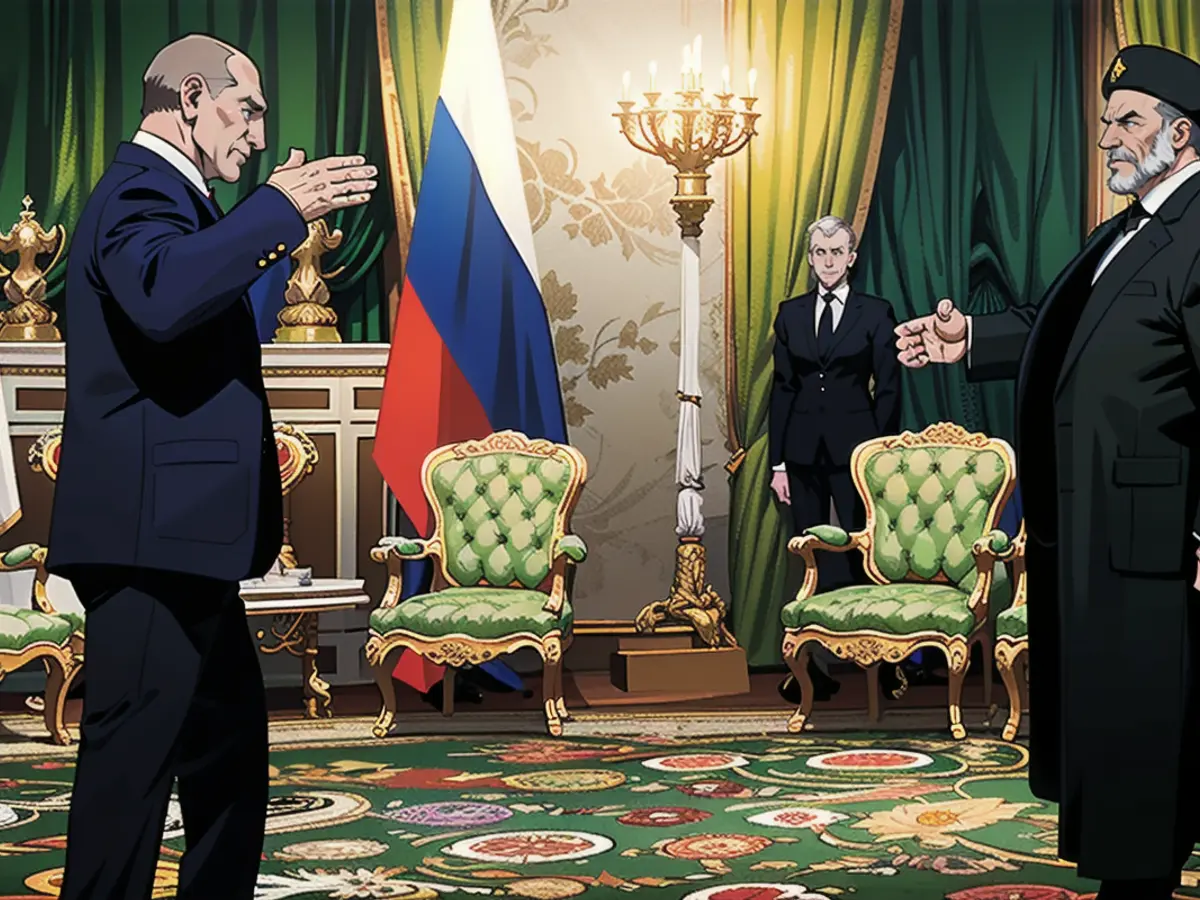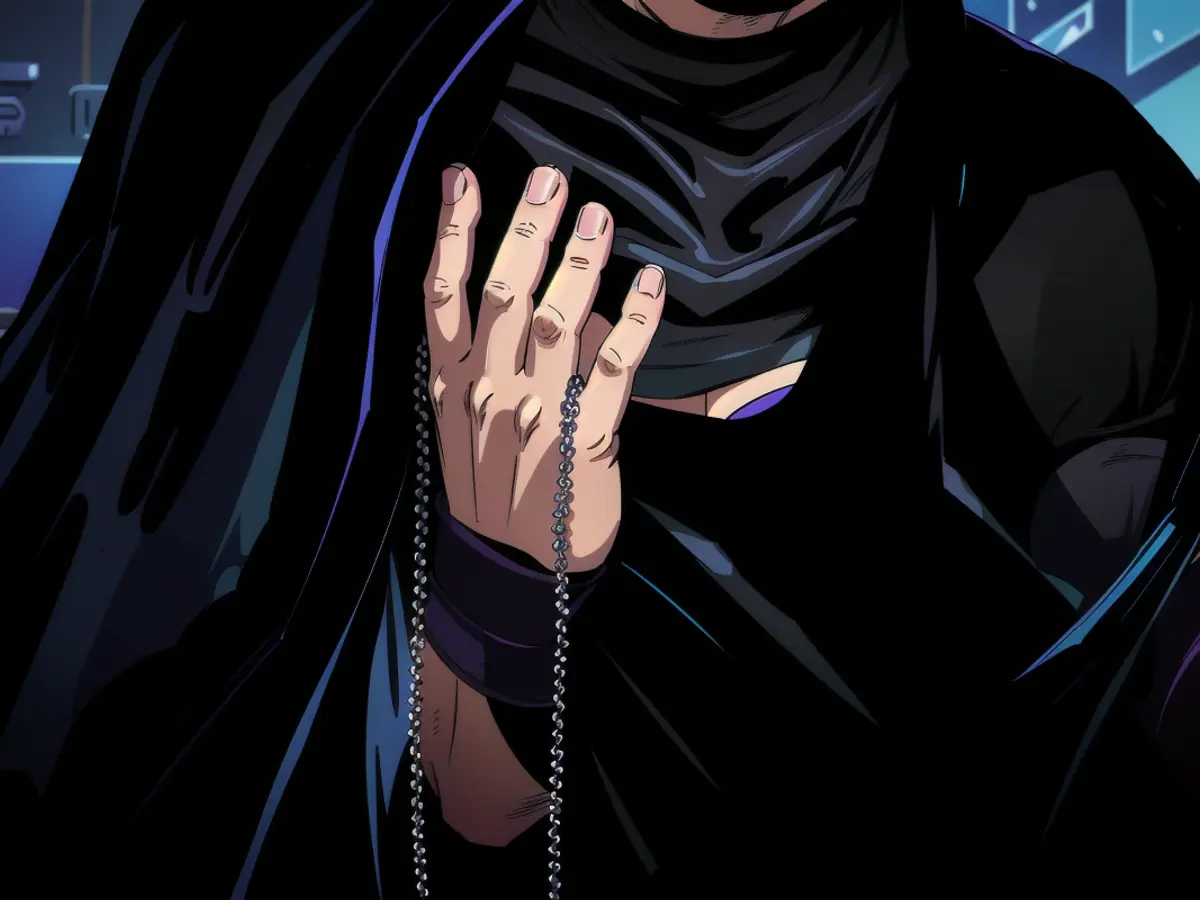Global pro-Palestinian demonstrations occurring at universities.
About 2,000 people have been detained at US universities since April 18th due to controversial debates regarding the right to protest, free speech, and accusations of anti-Semitism. While confrontations with police at Columbia University, Portland State, and UCLA have gained global attention, demonstrations and sit-ins are also occurring at campuses in Europe, Asia, and the Middle East.
One common demand among protesters is for colleges to divest from companies that support Israel and the war in Gaza. The ongoing conflict sparked on October 7th when Hamas militants killed over 1,200 people in southern Israel and took more than 200 hostages. Israel's military reaction has led to a humanitarian crisis in Gaza, making the situation increasingly tense worldwide.
Israel's seven-month bombardment of Gaza has resulted in over 34,600 deaths, according to the Gaza health ministry. Half of Gaza's 2.2 million residents are on the verge of starvation, and man-made famine is imminent, as per UN agencies. Additionally, there are concerns about an upcoming Israeli military operation in southern Gaza's Rafah, leading to renewed calls for a ceasefire.
This article provides an overview of some pro-Palestinian campus protests from around the world.
Australia
Over the past few weeks, pro-Palestinian protest camps have sprung up in at least seven Australian universities.
The University of Queensland in Brisbane hosted rival camps, with supporters of Students for Palestine UQ and a smaller group of tents bearing the Israeli flag among others hung between trees. Situated just 100 meters apart, these camps were set up to support Palestinians under Israeli siege in Gaza and US student protesters.
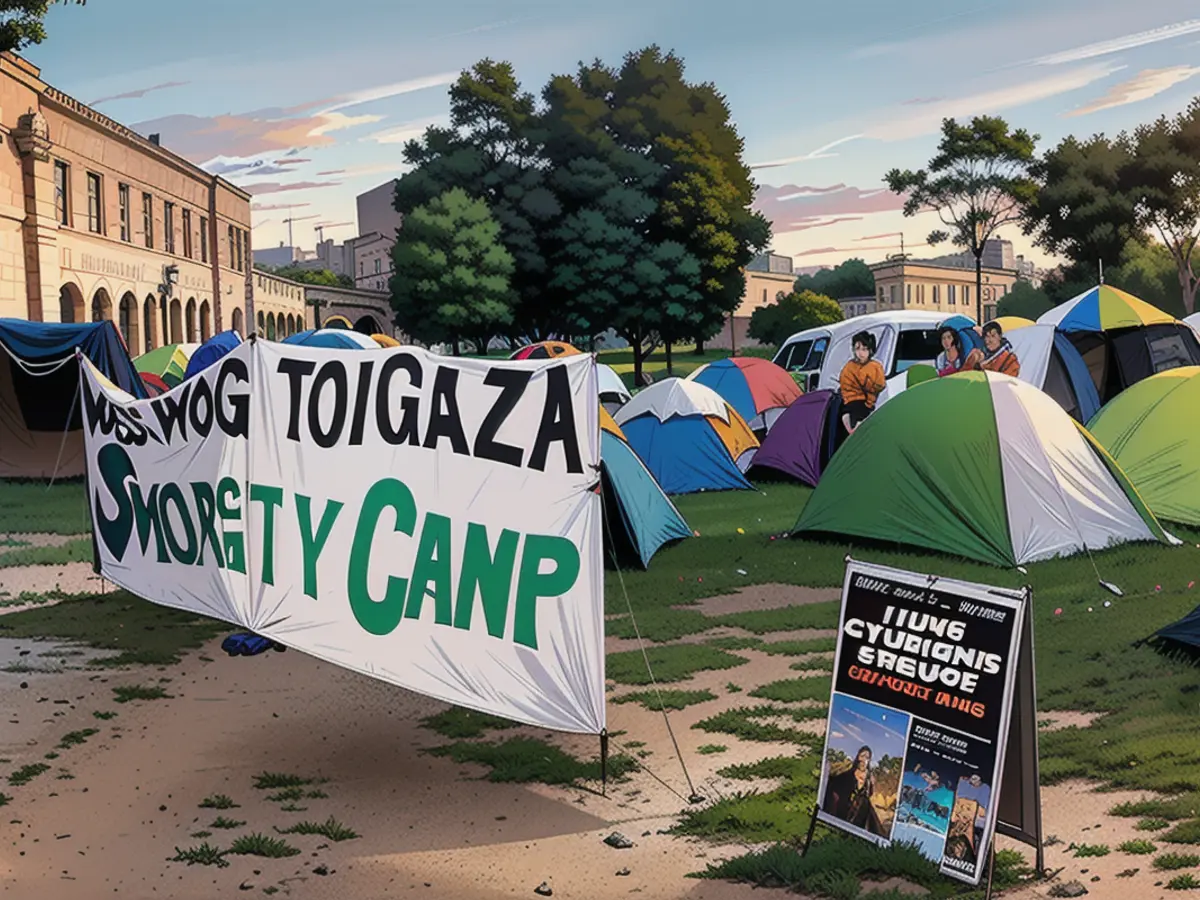
While violent incidents have erupted in the US, tensions in Australia have yet to escalate. Jewish groups express concerns that these camps are fostering unnecessary tension on campus, and Australia's opposition leader views them as "racist" and "antisemitic." Students for Palestine UQ aim to pressure the university to disclose all relationships with Israeli companies and weapons manufacturers, and sever ties with defense companies.
So far, violent clashes experienced at US universities have not occurred in Australia.
At the University of Sydney, about a hundred students have been sleeping in tents every night, scattered across the quadrangle. On May 3rd, Jewish groups staged a counter-protest against what one protester described as "a disturbing trend of antisemitic and anti-Israel activities" at the university. Around 200 individuals, some displaying both the Israeli and Australian flags, attended the event, but no hostile confrontation ensued between them and the pro-Palestinian group.
United Kingdom
Protests supporting Palestinians have taken place at UK universities since Israel's war in Gaza started, and encampments have been established recently.
At Newcastle University, a small pro-Palestinian encampment was erected on the lawn outside the main buildings, with about a dozen tents and various Palestinian flags. A college-related Twitter account, "Newcastle Apartheid Off Campus," posted pictures of the encampment. This student-led coalition seeks to end Newcastle University's partnership with defense companies providing support to Israel.
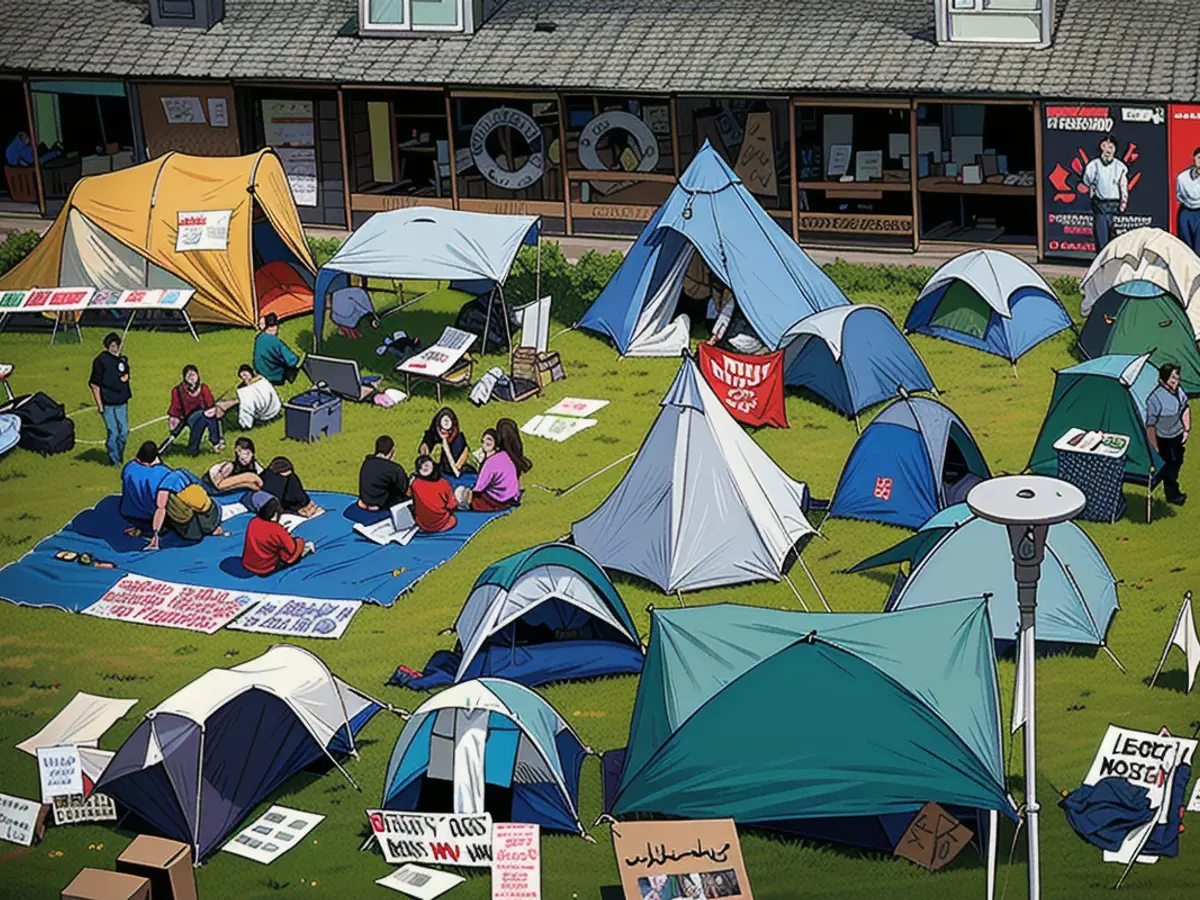
Students in Leeds, Bristol, and Warwick have also initiated tented protests outside their university buildings to oppose the war in Gaza.
These campus protests in Britain have received critique from some Jewish student groups.
France
In Paris, pro-Palestinian protests took place at Sciences Po and the Sorbonne universities in late April.
French police removed protesters from the Sorbonne - one of the country's top-tier institutions - with footage showing officers dragging two demonstrators out of tents and across the ground.
At Sciences Po, a protester revealed that a student had undertaken a hunger strike against the university's response to "students wishing to support Palestine." Video released by CNN showed students carrying placards demanding an end to the alleged "genocide" in Gaza and a boycott of Israeli universities.
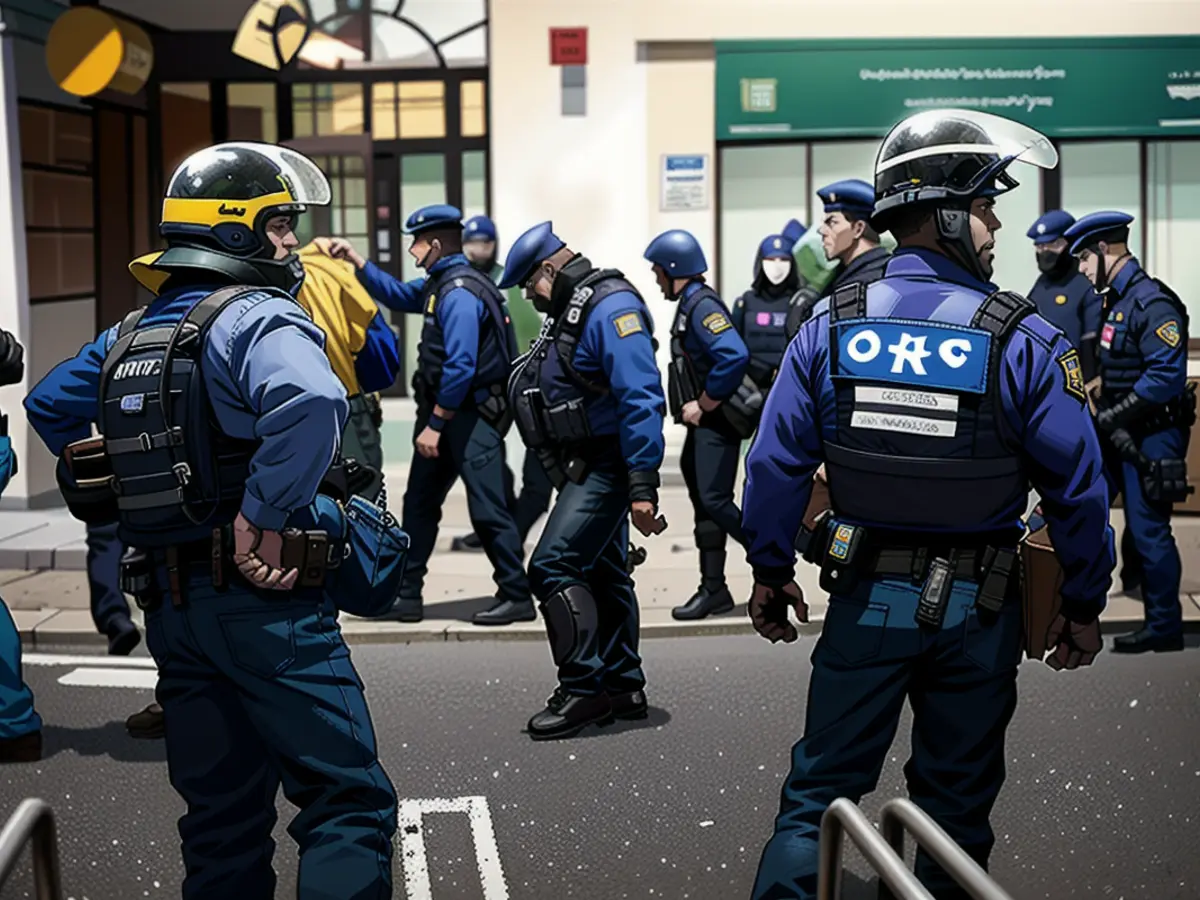
Sciences Po, a renowned French higher-education establishment, boasts of close connections to Columbia University, which has witnessed intense pro-Palestinian demonstrations.
"We are inspired by Columbia, Harvard, Yale, UNC, Vanderbilt," said Louise, a Sciences Po student. "All these universities that have mobilized, but our solidarity remains with the Palestinian people first and foremost."
In response to the protests, the Ile-de-France regional authority withdrew funds from the university until peace and safety were restored.
Samuel Lejoyeaux, president of the Union of Jewish Students of France, emphasized the need for more open dialogue between the two sides of the ideological divide. However, he opposed using police as a solution.
A student, stating that he would never be pleased to witness CRS (riot police) entering a college campus, wrote that he firmly believes in discussion. The individual added that significant social advancements in France have always emerged from militancy and debate.
Happening alongside an expected visit to the campus by the United States' ambassador to India, Eric Garcetti, protests took place at the prestigious Jawaharlal Nehru University (JNU) in New Delhi. This was an act of solidarity with students protesting at Columbia University. The JNU student union issued a statement on April 29, declaring "JNU's premises shall not provide a platform for administrations and personnel representing nations implicated in terrorism and genocide committed by Israel." The Indian university has joined forces with protesters at Columbia.
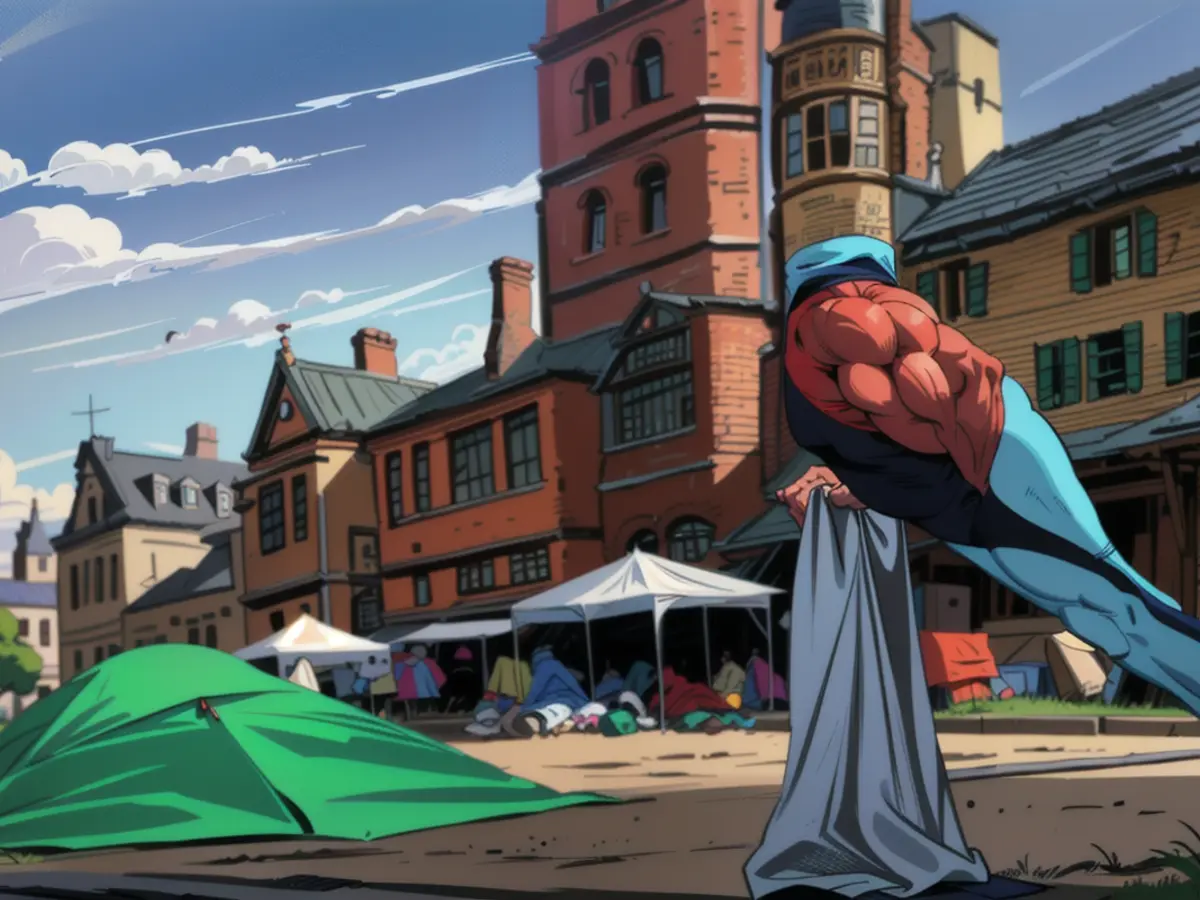
JNU, one of India's leading universities, has been actively involved in various protest movements, including those against a controversial law perceived as discriminating against Muslims.
Additionally, two student political parties at Jamia Milia Islamia University in New Delhi expressed solidarity with pro-Palestinian protesters. The Communist Party-affiliated Students' Federation of India released a statement that reads, "We also denounce the stance taken by our BJP (Bharatiya Janata Party)-led government in supporting Israel, which deviates from India's historical standpoint."
In Canada, campus protests against Israel's attacks in Gaza have occurred nationwide. McGill University in Montreal has become a focal point, as students have set up an encampment on the front lawn and are demanding that the college divest from companies associated with Israel.
Universities across Canada, like McGill, have attempted to clear the campus grounds despite failed dialogues with student representatives. Facing this resistance, the pro-Palestinian protesters continue to stand their ground. Canadian courts have also been asked to intervene, but in the case of McGill, a Quebec Superior Court judge rejected an injunction request on May 2 that would have forced the protesters to leave.
Protests on Canadian campuses, reminiscent of those occurring in the United States, have also been reported at the University of Toronto's downtown campus and the University of British Columbia in Vancouver.
In Lebanon, there has been a surge of students gathering at college sites, displaying Palestinian flags, and advocating for boycotting businesses with ties to Israel. Demonstrations were recorded at the American University of Beirut, where protesters displayed their opposition to the conflict in Gaza. Divulging their motivations, Ali al-Muslem, a 19-year-old protester, stated to Reuters, "We want to show the world that we have not forgotten the Palestinian cause and that the young, knowledgeable generation is still committed to it."
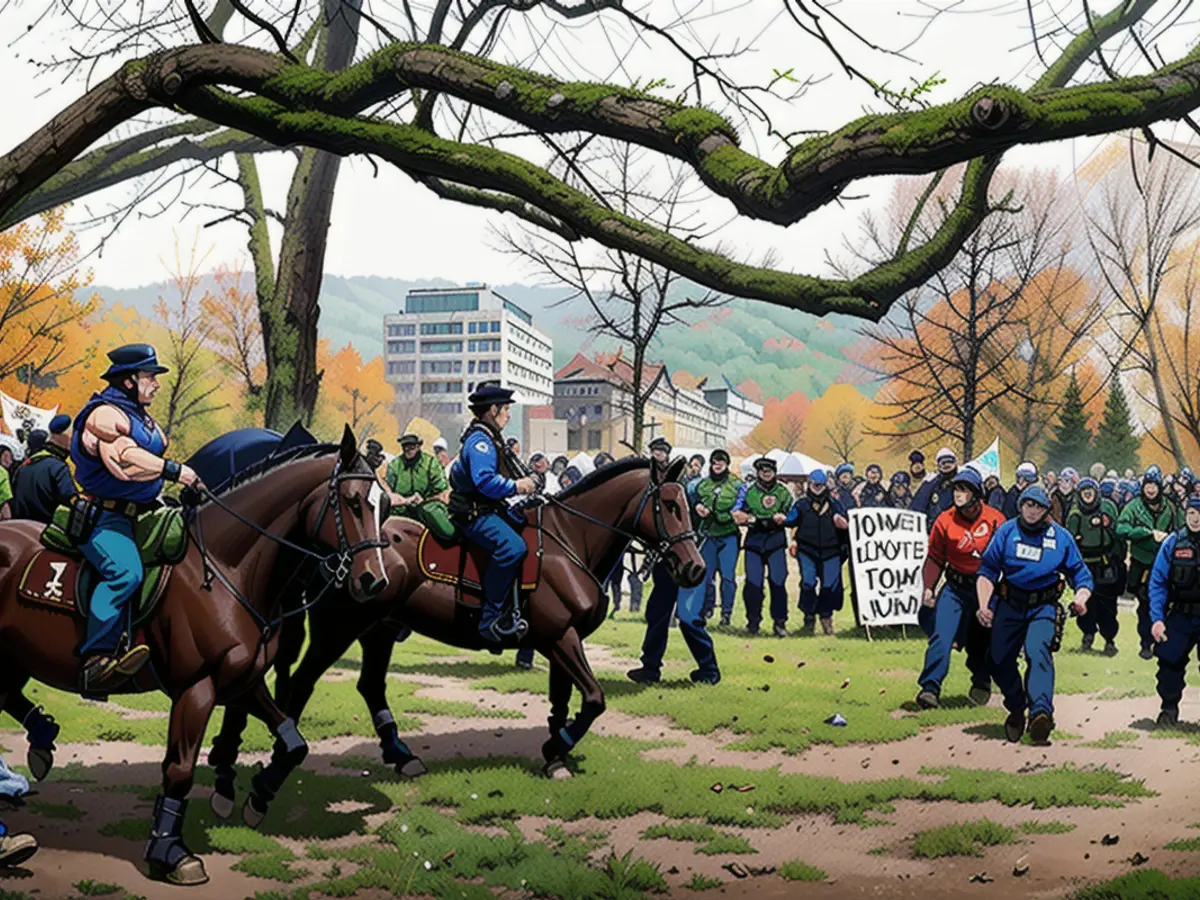
CNN journalists Esha Mitra, Hilary Whiteman, Angus Watson, Joseph Ataman, Julen Chavin, Melissa Bell, Mark Esplin, Niamh Kennedy, Paula Newton, and Alex Hardie collectively contributed to this report.
Read also:
- This will change in December
- Dikes withstand water masses so far - Scholz holds out the prospect of help
- Fireworks and parties ring in 2024 - turn of the year overshadowed by conflicts
- Attacks on ships in the Red Sea: shipping companies avoid important trade route
Source: edition.cnn.com






